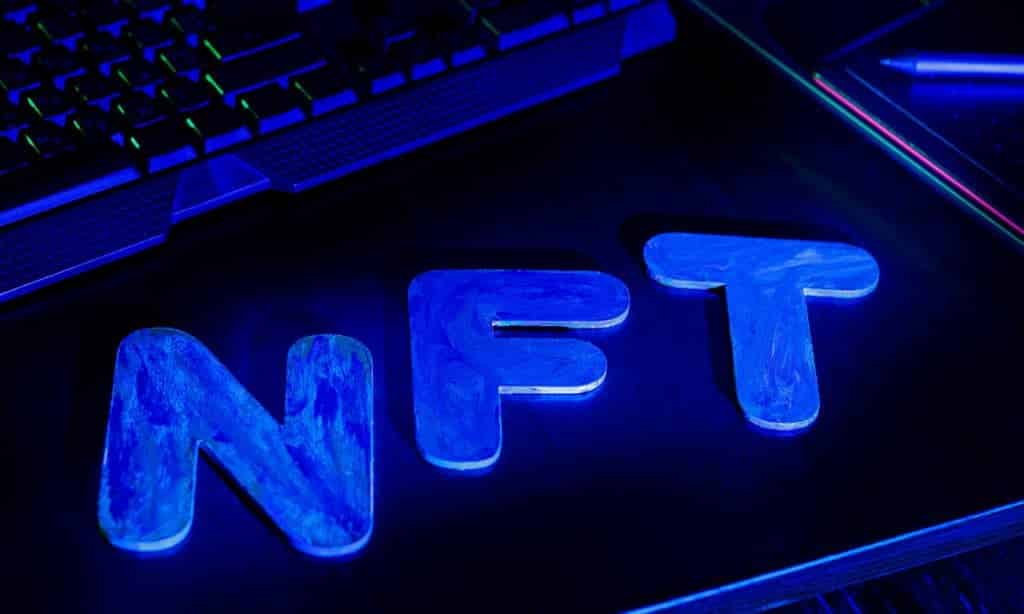Six Things NFT Investors Need To Know About Taxes

In Brief
Here are six things that those who’re regularly trading NFTs need to know when it comes to paying their tax bills.

With the crypto bull run of 2021, non-fungible tokens or NFTs emerged as a popular new asset class for cryptocurrency investors. The high-profile sales of digital collectibles such as the Bored Ape Yacht Club and CryptoPunks stirred enormous interest among crypto investors on both the retail and institutional side. Although NFT asset prices have fallen well below those heady days, they remain an incredibly popular bet.
The NFT investment space emerged rapidly and what that means is that the Inland Revenue Service is yet to establish clear cut guidelines on the issues and responsibilities investors have, taxation-wise.
That’s not to say NFTs are exempt from taxation. They’re not. So to try and clear things up, here are six things that those who’re regularly trading NFTs need to know when it comes to paying their tax bills.
1: Taxes Aren’t Due Until The NFT Is Sold
Anyone who creates or purchases an NFT is not liable to pay tax until they sell that asset. For creators, taxation is applied in the same way as anyone who produces something, for instance a painting. The revenue only comes when that asset is sold, and only then are they required to pax tax on the income obtained.
As for NFT traders, they are obligated to pay tax whenever they sell an asset at a profit. But so long as they don’t sell, they can sit on unrealized gains and are not required to pay any taxes on them.
The issue becomes more complex when it comes to exactly how NFT investors should treat those gains. Currently, there are two schools of thought among tax professionals. Some believe NFTs should be treated the same as regular capital gains, but there is a more predominant school of thought that thinks they should be treated similarly to collectibles, under a separate tax regime.
Those who opt for the first will be required to pay capital gains taxes on their net profit after sale. With this, the advantage is that losses on a trade can be netted against those gains. Investors can realize a net capital loss of up to $3,000 per year and deduct that from their taxable income. Such treatment is often more favorable for investors than treating NFTs as a collectible.
2: NFT Buyers Could Be Creating Separate Liabilities
A key thing to realize is that investing in NFTs using a cryptocurrency such as Ethereum could create a separate liability aside from the NFT itself. This is because any crypto transaction can create a tax issue, as a result of the IRS’s complex laws governing its use.
As an example, investors will create a tax liability any time they exchange crypto for NFTs and services worth more than what the cost basis in cryptocurrency is. To illustrate, suppose an investor purchased ETH for $1,000 and then used that to purchase NFTs worth $3,000, they would create a tax liability owed on that transaction.
The rules make it onerous to use crypto in the same fashion as fiat currency, and extend to any kind of transaction.
3: NFT Royalties & Income Is Also Taxable
NFTs often feature smart contracts enabling the original creator to receive a royalty on each transaction. So if Bob buys an original NFT from its creator and later sells it to Dave, the creator would receive a predetermined share of whatever fee Dave paid. Such royalties are generally a few percent of the amount of the sale, and this creates a tax liability for the creator.
The second-hand sales can also lead to a taxable gain or loss for Bob, the original buyer, depending on the sale price and cost basis of the NFT, and also the value received for the cryptocurrency used in the transaction.
Some kinds of NFTs represent physical assets that can generate an ongoing passive income. In this case, any income received via the NFT is taxed at the ordinary income tax rate.
4: The Rules Around NFTs Are Far From Clear
The IRS treats income from NFTs in the same way as other sources of income. But there is a lack of clarity in some situations, such as what happens if someone receives an NFT as a gift.
For instance, some big brands have created and given away NFTs to customers for promotional purposes. Pepsi did this in 2021, but refused to be drawn on questions regarding tax liabilities, stating that participants in its giveaway were solely responsible for paying any taxes owed as a result of that participation.
Traditionally, the giveaway of something with tangible value can create a liability. For example if a game show contestant wins a car, they’ll be required to pay taxes on that prize. Whether or not NFTs should be treated in the same way is unclear.
There’s also a lack of clarity around NFT values and the reference price that should be used to create a cost basis. While the car given away by a game show will have a retail price, it’s difficult to put a price on the real value of a specific NFT. And in cases where the NFT represents something, such as a physical property, it’s not clear if the value of that object should be used to determine the value of the NFT.
5: NFTs Are Also Subject To Sales Taxes
Some U.S. states are considering taxing NFTs at the point of sale in order to raise more income from the taxation of digital art sales.
In Washington, legislators have drafted an excise tax advisor that attempts to clarify the state’s position of NFT taxability. However, as that legislation slowly works its way into law, the state’s Department of Revenue has said taxpayers should consider NFTs as taxable according to its existing sales and use tax code.
6: Investors Don’t Have To Get Their Hands Dirty
The rise of NFTs to prominence as a viable asset class for investors means that some of the best crypto taxation platforms can already take them into account, automatically tracking investor’s transactions and filling out the necessary tax forms. Some platforms even go further. For instance, NFTBank provides tools that enable investors to ascertain the fair market value of an NFT based on real-world sales data, and these estimates can be used as a reference price for the cost basis of NFTs. The software is designed to help retail and institutional investors alike to meet their fiduciary obligations.
NFTBank employs state of the art AI algorithms to appraise the value of NFTs, as well as portfolio management and tracking tools for investors. Using its platform, investors can create customized tax reports based on a comprehensive dataset that provides reliable estimates of their NFTs’ value.
The Onus Is On Investors
Although the IRS is yet to make any official ruling on certain aspects of NFTs and digital art, that doesn’t mean investors can expect to get away without paying their taxes on any income from their sale. Similarly they’re also required to pay their dues on any passive income generated by their NFT holdings.
In the absence of more clearly defined rules regarding NFT taxation, anyone who invests in this asset class is advised to maintain a detailed and accurate record of their NFT transactions. In addition, they should remain alert to any announcements from the IRS regarding rule changes, as NFT taxation is a slow but evolutionary process.
Disclaimer
In line with the Trust Project guidelines, please note that the information provided on this page is not intended to be and should not be interpreted as legal, tax, investment, financial, or any other form of advice. It is important to only invest what you can afford to lose and to seek independent financial advice if you have any doubts. For further information, we suggest referring to the terms and conditions as well as the help and support pages provided by the issuer or advertiser. MetaversePost is committed to accurate, unbiased reporting, but market conditions are subject to change without notice.
About The Author
Gregory, a digital nomad hailing from Poland, is not only a financial analyst but also a valuable contributor to various online magazines. With a wealth of experience in the financial industry, his insights and expertise have earned him recognition in numerous publications. Utilising his spare time effectively, Gregory is currently dedicated to writing a book about cryptocurrency and blockchain.
More articles

Gregory, a digital nomad hailing from Poland, is not only a financial analyst but also a valuable contributor to various online magazines. With a wealth of experience in the financial industry, his insights and expertise have earned him recognition in numerous publications. Utilising his spare time effectively, Gregory is currently dedicated to writing a book about cryptocurrency and blockchain.

















































